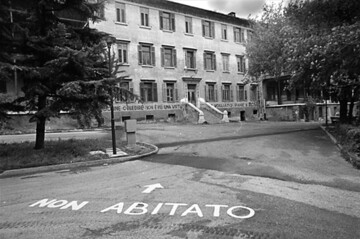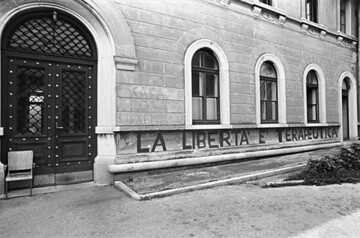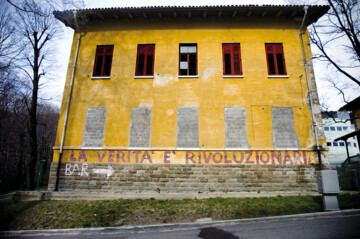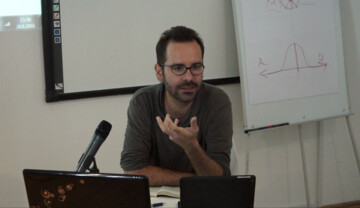On the wall of the Pavillon N in the former Loony Bin of Trieste, a graffiti cries: “LA VERITÀ É RIVOLUZIONARIA” (truth is revolutionary); almost illegible another sentence goes like this: “C'est toujours au nom de la verité que l'on enferme. Ne crois qu'à la tienne” It is always in the name of truth that a person is confined.
This palimpsest is the explosion in the public space of another practice of commonality, one typical of the interns of total institution. In the inscription, accumulation and overlapping of words on a wall, a conversation emerges between the one interned now, the one that was here before, and the one that will be here again after you; this silent conversation allows the inmate to become a living agent in and against the endless and identical objectivation of confinement, imposed by the institution. It is a conversation that expresses and refuses and resists the attempt of making the confined body and the confined life nothing else than a bare object for the institutional disposal.
In Trieste writing on the walls becomes a practice for claiming an appropriation of public space, a political voice that is composed through a palimpsest of walls, and floors, and letter boxes, throughout the city. A palimpsest of the commons.





